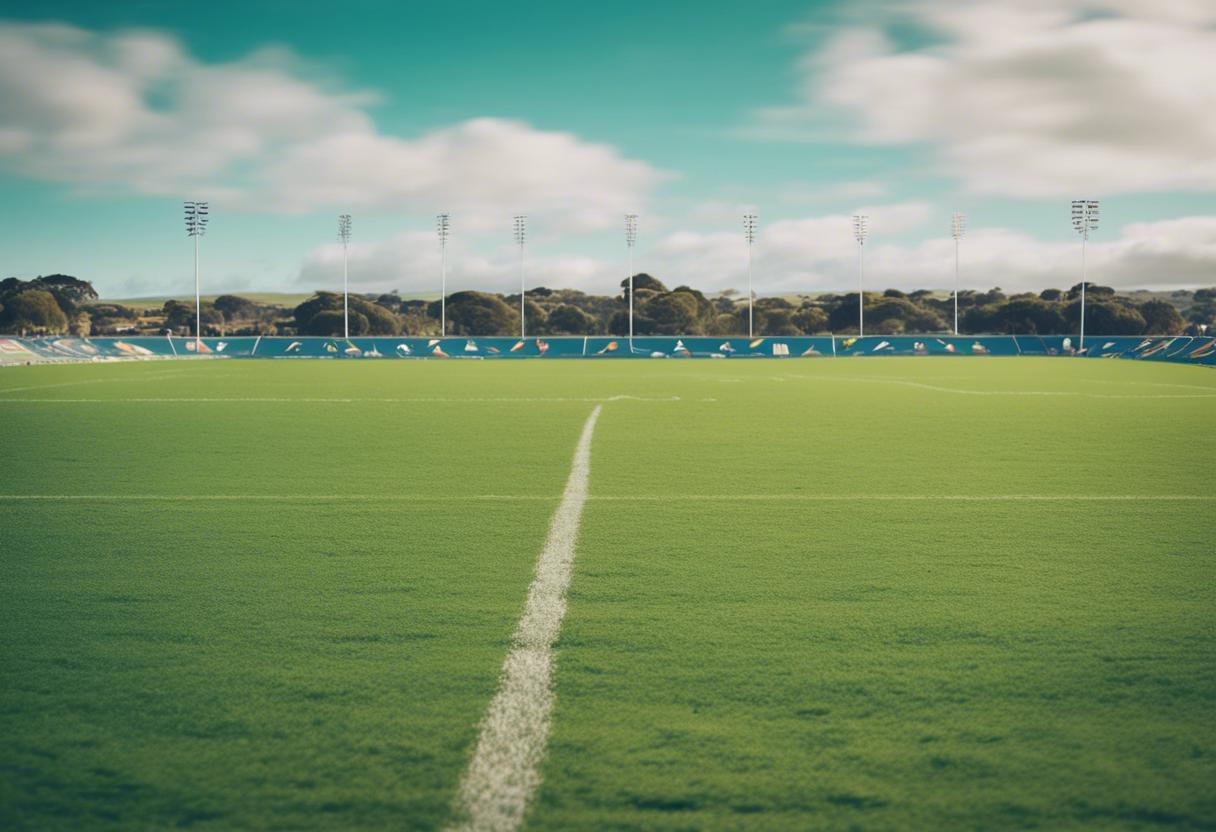This Saturday, Kingspan Stadium hosts the Ireland vs Australia match for Women’s International, a unique test to commemorate the IRFU’s 150th anniversary. Although not the season’s foremost priority, this game signifies a renewed focus on the 15-a-side game as the ripples of the Olympics wane, especially following last season’s promising start.
In the previous season’s Six Nations, Ireland commendably secured third place, significantly higher than initial expectations. This achievement included victories against Wales (36-5) and Scotland (15-12) on the home ground, along with some advantageous results elsewhere, notwithstanding a disappointing home defeat to Italy.
Securing a spot for the World Cup came as a further boon, catapulting the team to the premier tier of WXV towards the end of the month in Vancouver. With the imminent match against the world’s fifth ranked team, this test arrives as an impeccable warm-up for forthcoming matches against top-ranked teams: New Zealand, Canada, and the USA. The visit of powerhouses, England and France, in the Six Nations also looms, reminding us that the Irish women’s team is once again at the highest level of competition.
Whilst the seven changes in the starting lineup may raise a few eyebrows, head coach Scott Bemand warmly welcomes the transition of Irish Olympic Sevens players to the 15-a-side game, matching his enthusiasm following the victory over Scotland last April.
Bemand’s excitement is particularly noticeable with the return of the Olympic players, including 21-year-old Vicky Elmes Kinlan making her debut, and the inclusion of Amee-Leigh Murphy Crowe, offering a promising attack in Beibhinn Parsons’ injury-induced absence.
/”After recuperating from an ACL injury and maternity leave, Eimear Considine makes a comeback as a full-back, for her debut Test since the Six Nations 2022, much to her own astonishment. Following her performances in two games for Munster where she came in as a substitute, she completes the restructured back three, akin to Murphy Crowe.
Bemand has beefed up the reserves, praising the impetus deriving from Olympians Erin King, Emily Lane, Eve Higgins and Stacey Flood. Nevertheless, the contribution of these players will rely significantly on the performance of Ireland’s set-piece. With Sam Monaghan absent, the burden falls on new player Ruth Campbell, whilst Linda Djougang shifts back to tight-head.
The Wallabies, notwithstanding the distinctive operations of 15s and 7s in Australia, have encountered injuries too, prompting them to make seven alterations from their previous match where they suffered a 62-0 defeat from New Zealand in July. The team will introduce first-time appearances of Alapeta Ngauamo, Lucy Dinnen and Tiarah Minns from the reserves. Echoing similar sentiments, Wallaroos coach Jo Yapp mentioned, “It’s a reformed team and it is crucial with a few injuries to establish depth in important areas and grant players a chance.”
The team sees the return of Bridie O’Gorman, the 25-year-old loose-head, who has Irish roots and is delighted to be back in her “homeland”. She will undoubtedly receive overwhelming support from her extended family from London, Limerick and Cork.
The last game of Wallaroos has highlighted the formidable gap between top-notch teams and the others in women’s rugby. But rest assured, the Australians are well-equipped to deal with tough competition. They posed a commendable challenge in the Pacific Four Series this year, even though they lost by 33-14 to Canada and by 32-25 to the USA. However, they did manage to secure victories over France and Wales in WXV1 last year.
In the history of their face-offs, the one of note ended up in Australia’s favour in the 2017 World Cup. They bagged a victory in the semi-final playoffs for the 5th-8th place at this exact venue. Bemand sees this upcoming fixture as an exceptional chance.”/
“They rank among the top five or six globally,” he commented. “Their absence from WXV1 might have been a stroke of bad luck, as they’ve consistently maintained that level of performance. We must acclimate to facing rivals of this calibre and managing such events.
“There are a few new faces on the team, but there’s also a group of women who last sported the Irish jersey in a victorious match against Scotland. Therefore, it’s crucial we continue to boost our self-belief and improve our game. From what I’ve gathered thus far, I’m hopeful of a display that will make the Irish fans proud.”
Team Ireland comprises of Eimear Considine (UL Bohemian/Munster); Vicky Elmes Kinlan* (Wicklow), Aoife Dalton (Old Belvedere/Leinster), Enya Breen (Blackrock College/Munster), Amee-Leigh Murphy Crowe (Railway Union/Munster); Dannah O’Brien (Old Belvedere/Leinster), Molly Scuffil-McCabe (Leinster); Niamh O’Dowd (Old Belvedere/Leinster), Neve Jones (Gloucester-Hartpury), Linda Djougang (Old Belvedere/Leinster); Dorothy Wall (Exeter Chiefs/Munster), Ruth Campbell (Old Belvedere/Leinster); Aoife Wafer (Blackrock College/Leinster), Edel McMahon (Exeter Chiefs/Connacht, capt), Brittany Hogan (Old Belvedere/Ulster). The substitutes include Clíodhna Moloney (Exeter Chiefs), Siobhán McCarthy (Worcester Warriors/Munster), Christy Haney (Blackrock College RFC/Leinster), Fiona Tuite (Old Belvedere RFC/Ulster), Erin King* (Old Belvedere), Emily Lane (Blackrock College RFC), Eve Higgins (Railway Union), Stacey Flood (Railway Union).
In Australia, various rugby players representing different teams have been listed. These include Lori Cramer from the University of Queensland, Maya Stewart from Nelson Bay Gropers, and Georgina Friedrichs from Wests Bulldogs among others. Additionally, Cecilia Smith from Leeton Dianas, Desiree Miller from Eastern Suburbs and Faitala Moleka from Blacktown Scorpions have been mentioned. Natalie Wright from Wests Bulldogs, Bridie O’Gorman from Sydney University, Ashley Marsters from Booroondarra and many others are also included in the list. Clara Munarini of Italy will be officiating as the referee.
In the history of Rugby World Cup (RWC) matches between Australia and Ireland, Australia won twice, in 1998 (Amsterdam) with 21 to 0 and in 2006 (Edmonton, Canada) with 18 to 14. Ireland once beat Australia in a 2017 (UCD Bowl) pool match with a scoreline of 19 to 17. Meanwhile, in an RWC 5th/8th playoff, Australia scored a victory over Ireland (36 to 24, Kingspan Stadium). Based on the forecast, Australia is predicted to triumph once again.

